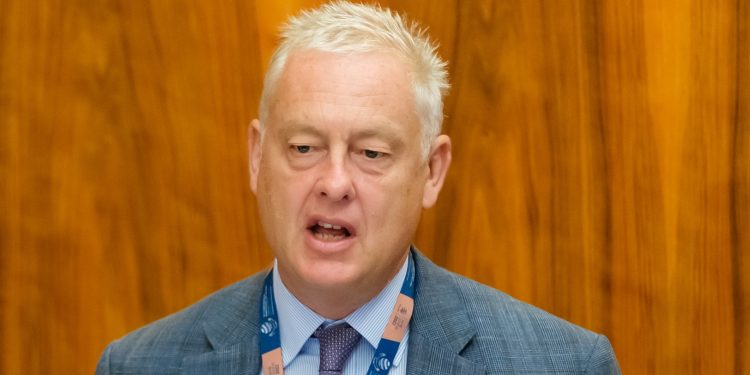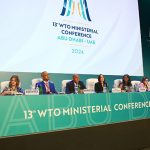The United Kingdom has called on Nigeria to accelerate its economic reforms by addressing the market-distorting practices of state-owned enterprises (SOEs), which it believes hinder trade and investment. This plea was made by Simon Manley, the UK’s Permanent Representative to the World Trade Organisation (WTO), during Nigeria’s Trade Policy Review in Geneva on Monday.
While praising Nigeria’s economic reform efforts, including the removal of fuel subsidies and monetary policy adjustments, Manley emphasized that further reforms are necessary, especially in tackling the harmful impact of SOEs.
According to a WTO Secretariat report, as of 2022, approximately 40 state-owned enterprises, primarily in the energy sector, were operating in ways that hindered competition. Manley described these market-distorting practices as detrimental to private sector participation and urged Nigeria to take swift action to address them.
He also highlighted challenges faced by British businesses in Nigeria, including harmful subsidies, forced technology transfers, discriminatory enforcement of competition laws, and complex regulatory frameworks.
“There are concerns around the impact of state-owned enterprises on the business environment. These enterprises often employ market-distorting practices and benefit from unfair competition,” Manley said. “We would encourage Nigeria to address these harmful practices to boost investment, trade, and improve the business environment, ultimately increasing prosperity.”
Manley also reaffirmed the importance of the UK-Nigeria Strategic Partnership, which aims to reduce trade barriers and promote mutual growth. He commended Nigeria’s efforts to diversify its trade, particularly in manufacturing and agriculture, as well as its infrastructure investments in energy, housing, and transport, all of which have contributed to the country’s economic progress.










